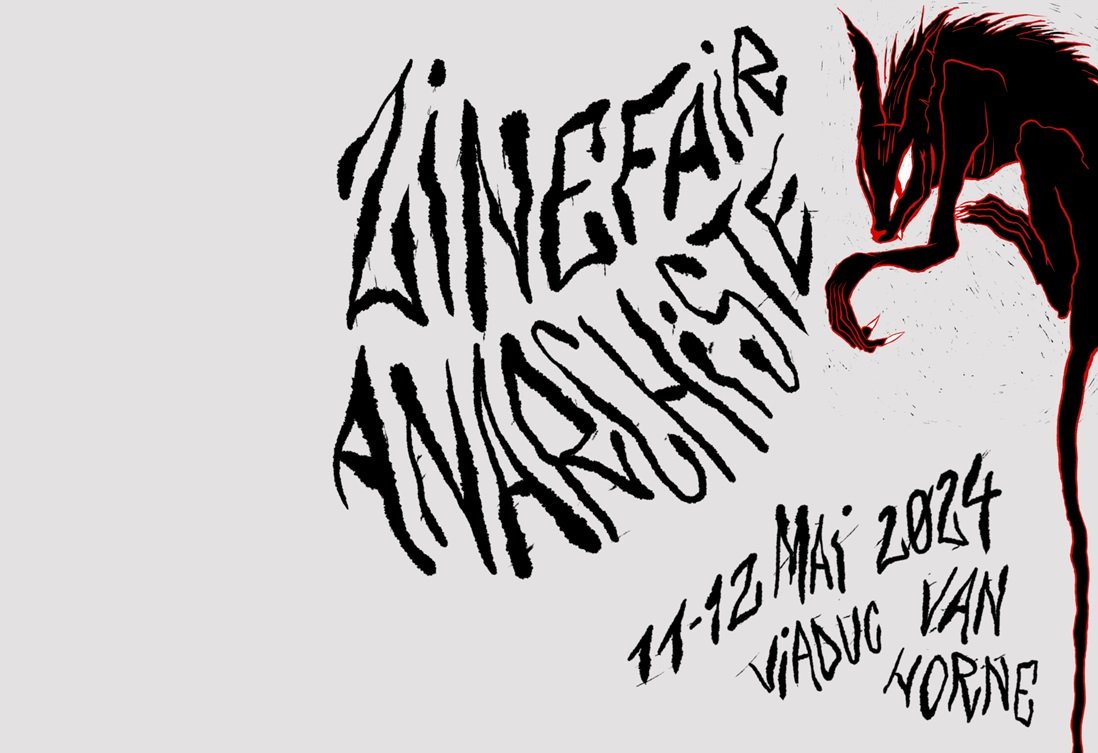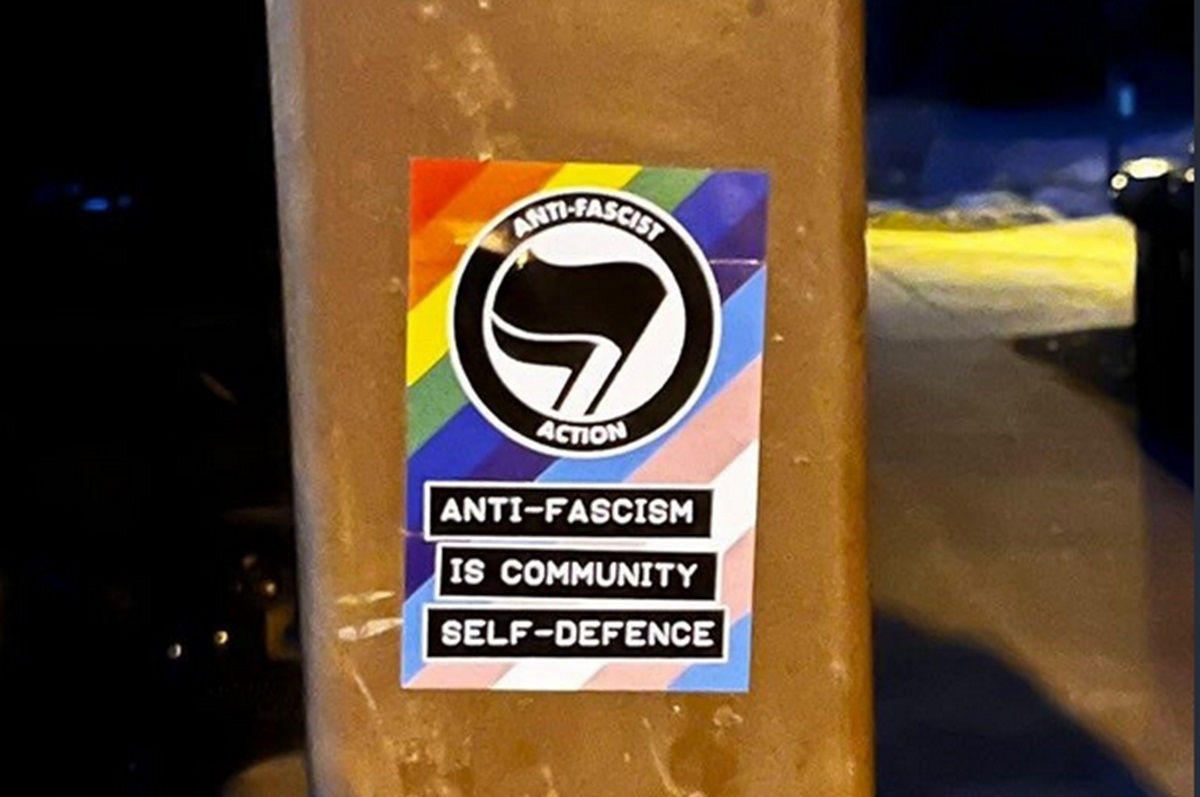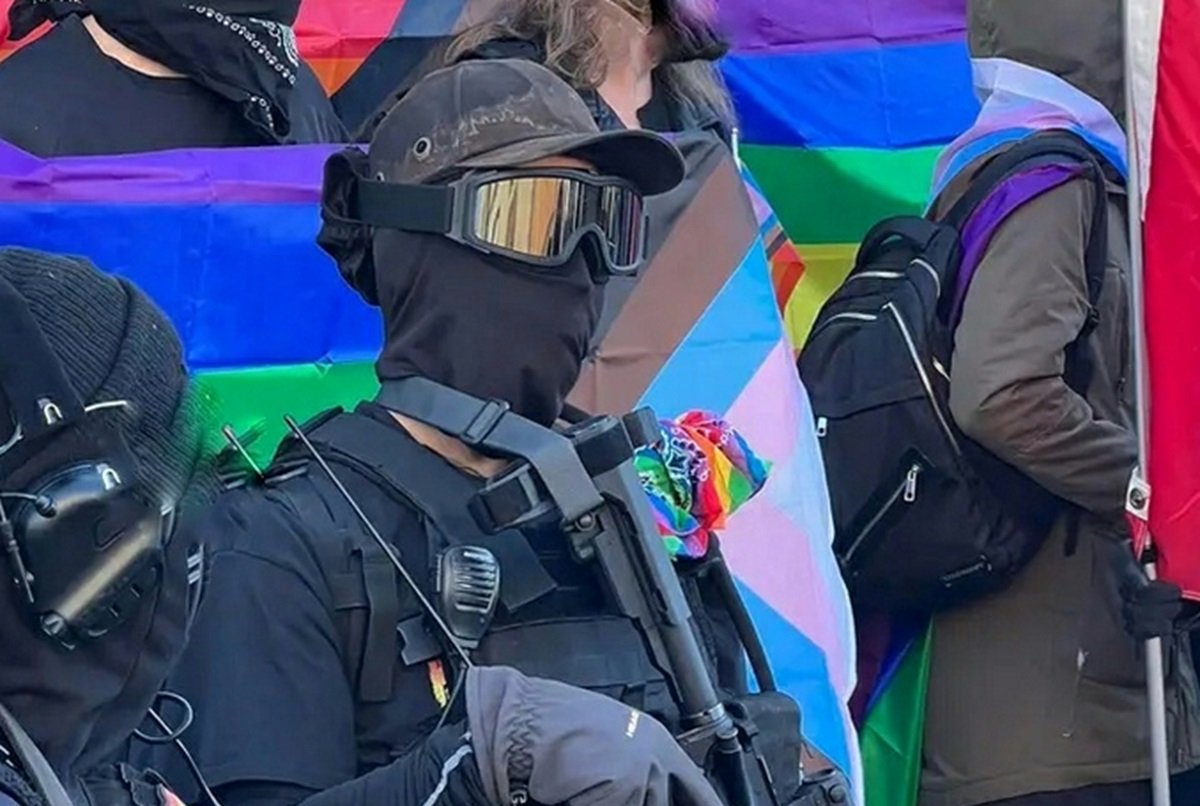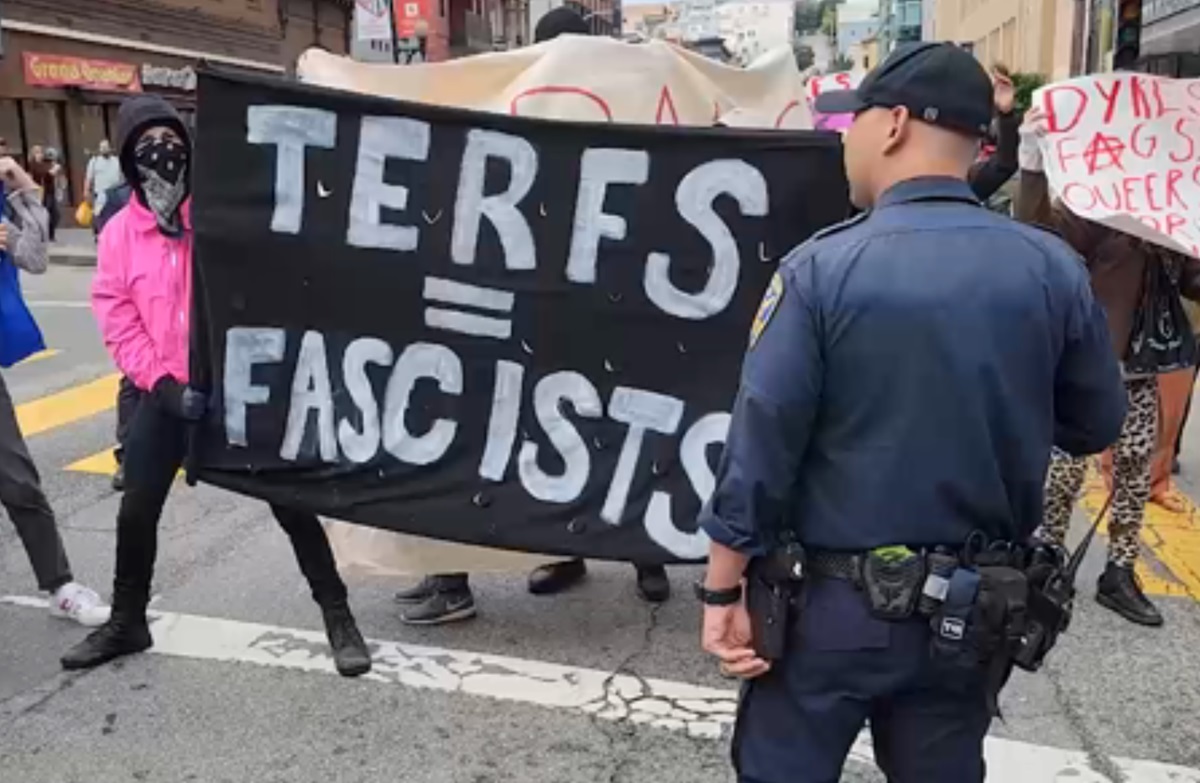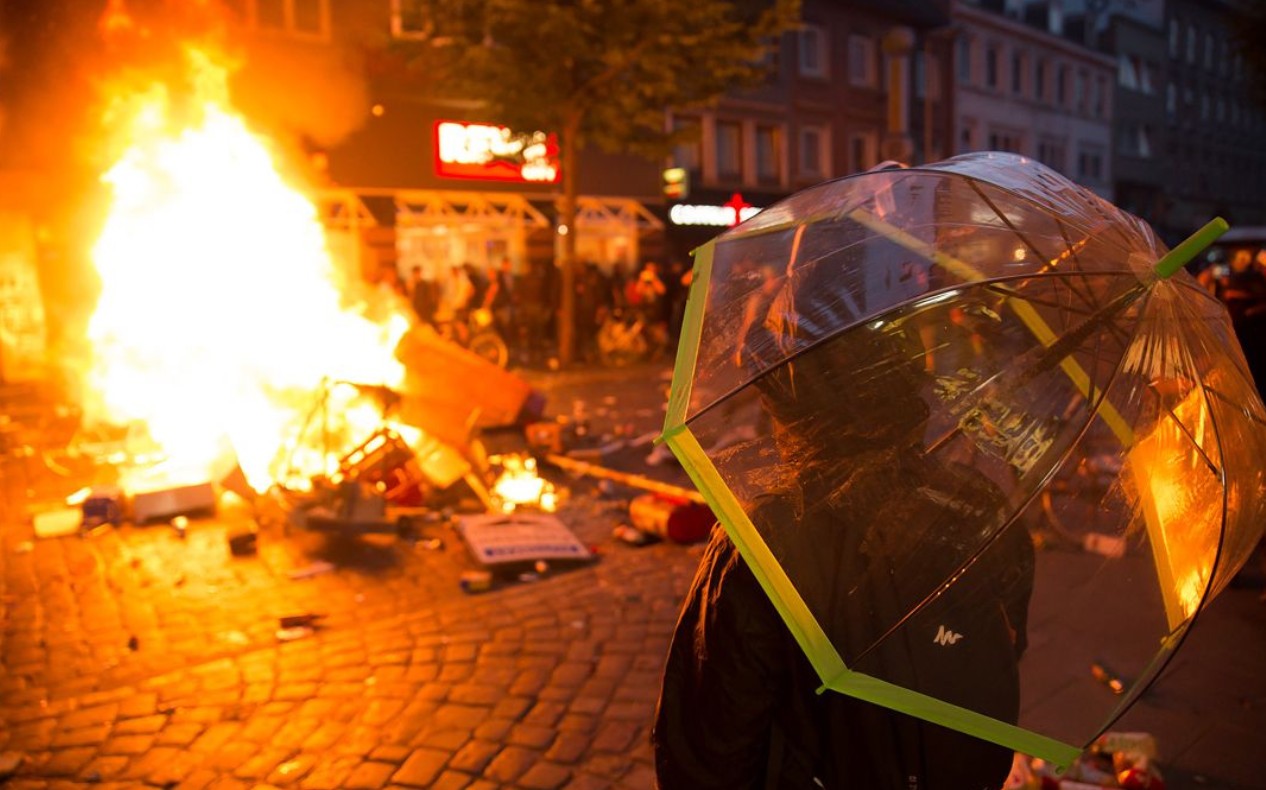
Author and podcaster Dan Arel reviews the new book, In Defense of Looting, by Vicky Osterweil. To listen to an interview with Osterweil, go here.
In the protests following the death of George Floyd, media outlets around the country quickly began ignoring the messages, demands, and purpose of the nations largest uprising in decades and quickly turned the narrative to looting, and blaming outside agitators.
Liberal and conservative pundits and politicians alike put themselves in front of cameras to blame anarchists and antifascists, and repeat a narrative that these actions are not part of the overall protests, thus blaming “outside agitators.” While these pundits agree on little else around the Black Lives Matter uprisings, they do seem to agree that looting must be condemned and those taking part shamed, arrested if possible, and prosecuted. For liberals and conservatives, looting is deemed indefensible.
Yet looting has a long, often ignored history in uprisings as author and columnist Vicky Osterweil demonstrates in her new book In Defense of Looting (August 25, 2020, Bold Type Books). Osterweil argues that looting serves an important purpose in riots and uprisings and is in fact a pragmatic strategy.
Riots, she says, are “violent, extreme,” and that they “give birth to a new world.” And the looting is a means of not only wealth distribution that can improve the lives of the working class, but also send a clear message to the police and the State.
What makes this book so refreshing is that is not written as a sterile academic account and by Osterweil’s own confession early in the book that she’s not an academic. This works to make the book more accessible, rather than pages of studies and papers, the reader is greeted with thoughtful, smart antidotes and carefully researched historical narratives of what brought us to the place we are today. Explaining the history of slavery, police, labor, and demonstrating how at each crossroad, riots and looting brought us to the next stage of progress.
The timing of this book couldn’t be more important as the US is approaching its 90th straight day of protests against police brutality in Portland, OR, and rioting and looting has only just begun in Wisconsin in the wake of the police shooting of yet another unarmed black man, Jacob Blake. With more uprisings, come more commentary and denouncement of the actions of those fighting for their lives.
Journalists such as Lee Fang of The Intercept, who was one of the first to denounce the black bloc protester who punched the Nazi Richard Spencer in the head in 2016, is now tweeting that if those looting and rioting don’t care about property, they should burn down their own homes. Comments such as this highlight the liberal mindset that looting, rioting, and property destruction must be condemned fails to account for the history, dating back to the 1600s in which the use of such radical tactics shaped the future of this county. This sort of commentary erases the importance of such tactics being used now, and tells those in the streets that protesting for their lives should be done in a way that makes people feel more comfortable.
One place the book really shines is in the way the stories and lessons of riots are framed. For many Americans, they are only now learning about the Tulsa massacre on Black Wall Street (thanks in part to the success of HBO’s The Watchmen), yet when we do read about the events on that day and leading up to it, we hear one side and that side is that of the white oppressors, mainly police and government agencies and how they destroyed a city, community, and they body count in which they took. Yet, we don’t hear the stories of the Black men and women who fought against these white supremacists who risked, and gave their lives defending themselves and their neighbors.
Just as important as it is to learn the history of white supremacy in the US, it is equally as important to know, and celebrate the Black individuals, groups, and organizations that fought back and understanding the tactics they used to defend themselves. These revolutionaries fought back, and white history is trying to erase their bravery and significance.
If you’re someone who isn’t sure you understand the tactics of looting, or if you’re someone who does, this is a book you’ll want to read. There are lessons in this book for everyone and will arm the reader with the tools they need to discuss the current uprising around the US with liberals, conservatives, and those relatives you will have to argue with over the holidays.
Dan Arel is an author, columnist, and labor activist. His work has been featured on It’s Going Down, Huff Post, Time Magazine, Salon, and more. You can follow Dan on Twitter @danarel.


